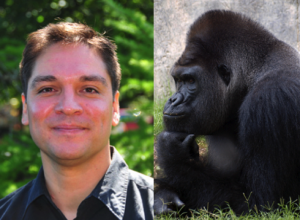My start as a music major in college does not exactly fall in line with activities that promote appropriate hearing health. But in a serendipitous way it was my potentially harmful passion for the drums that nudged me from music performance to a career as an audiologist. During my sophomore year in college, I decided to enroll in an elective class that was entitled “Introduction to Hearing Science”. In the course description, I remember one area of focus being on hearing loss and prevention. Learning how the auditory system works and the idea of better protecting my hearing was very appealing to me. Within a year I had completed nearly a third of the required course work for a major in Communication Disorders and as a result, I decided to shift gears and change majors. I haven’t looked back since.
In the winter of 1997, I graduated from the University of Northern Colorado with degrees in Speech-Language-Pathology and Audiology. In the summer of 1998, I headed east to attend graduate school at Michigan State University, where I received my Master’s degree in Audiology and Speech Sciences. As a requirement for the profession of Audiology at the time, I started my training for the Clinical Fellowship Year (CFY) at the Cleveland Clinic Foundation in June 2000. It was during my CFY that I decided to pursue the PhD degree. With outstanding support and leadership from my mentors, I was able to start my doctoral training at Kent State University in the fall of 2002.
This is the time point when the road became a little bumpy for me. Throughout my education and training, I became interested in differential ways to diagnose hearing loss in difficult-to-test patient populations using electrophysiological methods. This interest is what originally led me to Kent State to work with an expert on the topic. However, my new advisor was moving away from clinical electrophysiology research to focus more on science-based neurobiology research of bats…of all things! Unfortunately for me (or at least what I thought at the time), there was not another research lab at Kent State that was doing anything remotely related to what my focus had been. As a result, I was suddenly faced with either finding a new advisor or dropping out of the program entirely. Taking a leap of faith (or, perhaps, feeling like I had no other option) I decided to align with my advisor and hope for the best. Admittedly, I was not very excited about the change initially, but after I endured some tough lessons in basic biology – along with a couple of bites from the bats – I eventually got into the swing of things. I soon realized that I was on the correct research path and I completed my PhD in Audiology and Neuroscience in December 2006. To better equip myself for a career in research, I joined the Otolaryngology Department as a postdoctoral fellow at the University of Washington. There, I investigated developmental aspects of normal hearing function in the auditory brainstem of chickens (yes, I said chickens).
Today, my research focuses on the development of excitatory properties in neurons responsible for encoding temporal cues of sound. My hope is that the results of my research will help audiologists better understand how the auditory system develops so that they can diagnose and treat disorders more effectively. I joined the Roxelyn and Richard Pepper Department of Communication Sciences and Disorders in July 2012. I have been fortunate to have my research supported by the National Institute on Deafness and other Communication Disorders and the National Organization for Hearing Research.

